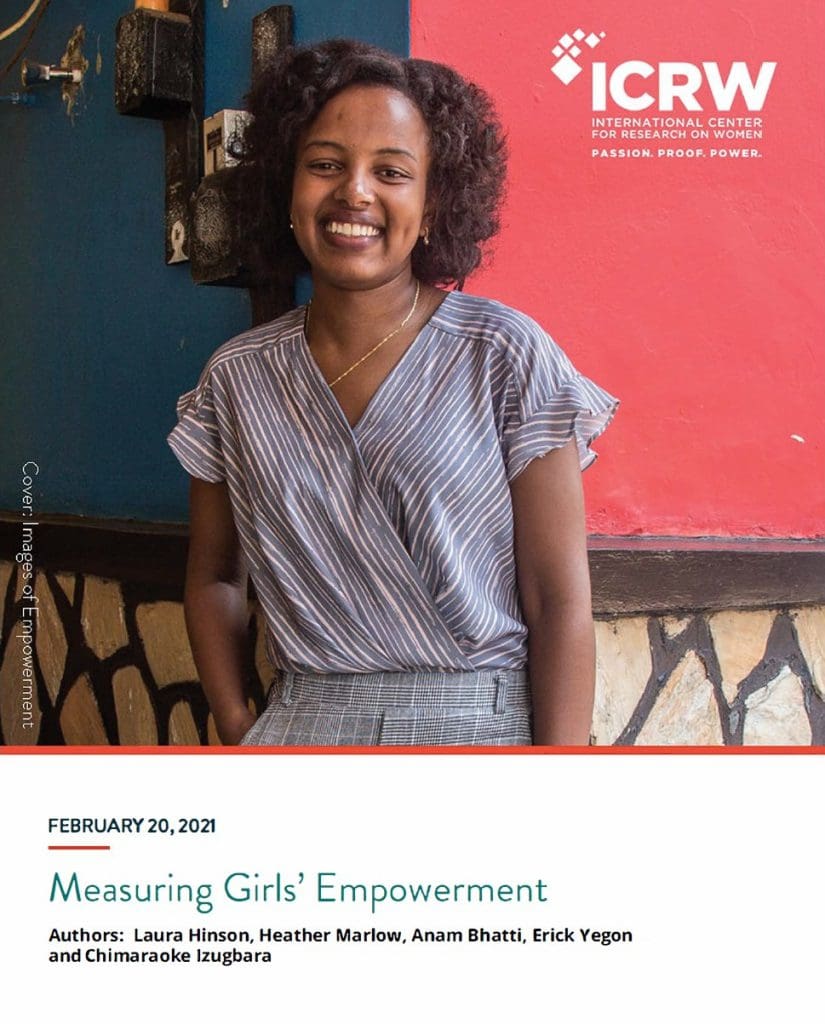
Measuring Girls’ Empowerment
 Empowering girls (commonly defined as aged 10 to 19) to improve their health and well-being is critical to their success and that of their communities.
Empowering girls (commonly defined as aged 10 to 19) to improve their health and well-being is critical to their success and that of their communities.
Gender equality and empowerment for women and girls is one of the Sustainable Development Goals. Many investments have been made to support young girls to thrive, avoid early marriage and childbearing and stay in school. One increasingly common approach has been through empowerment programming. In its broadest definition, empowerment is a process by which individuals can expand their choices, strengthen their voice, and exercise control over their lives. Yet, the concept of empowerment and its operationalization into programs is often poorly defined and hard to measure.
Key Conclusions
- One of the main challenges of applying empowerment concepts historically applied to women to girls is that they have not yet experienced the life events on which most empowerment models are predicated.
- There are several empowerment frameworks for “women and girls,” some broadly applicable and others more specific to the domain of sexual and reproductive health. These frameworks have built off each other and provide a rich theoretical and conceptual foundation for how to approach empowering women and girls. It is not surprising, therefore, that those aiming to address girls’ empowerment have started with the concepts found in these frameworks, such as agency (either operationalized as self-worth or self-efficacy), decision-making, voice, and mobility.
- Conceptualization and measurement of empowerment for girls in unique contexts around the world is still nascent. It is promising that constructs like agency, voice, choice and mobility appear to resonate with girls, and are measurable and theoretically connected to positive development outcomes.
- Several large research gaps exist. For one, it is not known whether empowering a girl in one domain (e.g., boosting self-efficacy to use a condom with a boyfriend) will empower her elsewhere (e.g., enhance her confidence to advocate for political rights), nor whether an overall empowerment strategy will trickle down across all domains.
Download the report by clicking on the button below:
